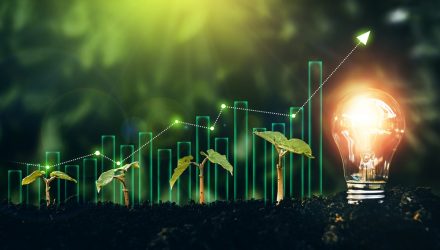We are witnessing a major transition in the energy sector today, as the world pivots from fossil fuels to clean energy. But this isn’t just about adding solar stocks. Holistic investments should consider the next-gen, “smart” tech transforming worldwide production and consumption of energy.
In the upcoming webcast, More Than Just Renewables: Hidden ETF Opportunities in the Energy Transition, Andy Hicks, senior vice president and director of ETF portfolio management and research at SS&C ALPS Advisors; and Paul Baiocchi, chief ETF strategist at SS&C ALPS Advisors, will outline the disruptive shift from traditional sources of energy and discuss the investment opportunities available for financial advisors who position their portfolios for this change.
Specifically, the ALPS Clean Energy ETF (ACES), which tracks the CIBC Atlas Clean Energy Index, offers investors a broad-based approach that could benefit from elevated, long-term clean energy spending.
“There is a major transformation underway in the energy sector today. The transition to clean energy is not just about adding more renewables. It’s about cleaner and smarter technologies transforming worldwide production and consumption of energy. This shift is disruptive to traditional sources of energy, but it also presents a compelling and long-lasting investment opportunity for the companies and industries positioned for the change,” according to ALPS.
ALPS Clean Energy ETF could capitalize on the significant growth potential as the shift to a cleaner energy mix accelerates, and broad-based policy support continues to underpin demand.
ACES’ underlying index has a differentiated approach to investing in the sector. First, by narrowing the list of constituents to companies whose primary operations are focused on clean energy, the fund offers more pure-play exposure to the sector. Second, constituents are diversified across the sector offering exposure to the full opportunity set of this transition, and also helps to minimize the risk of investing in a single sub-segment. Lastly, focusing on U.S. and Canadian-based companies helps to further minimize the risk of investing in a global industry by reducing risks related to foreign holdings, including currency exchange rates, financial disclosures, and regulatory and policy changes.
Financial advisors who are interested in learning more about the clean energy transition can register for the Monday, June 6 webcast here.








